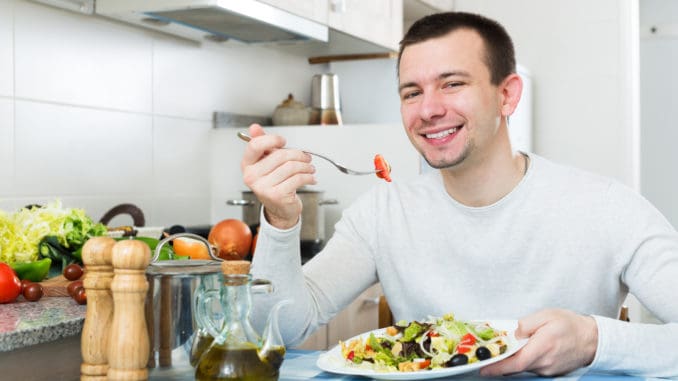
It’s incredibly potent and super rare… but I’ve got the recipe…right here

—-Important Message—-
Here’s the jungle juice recipe that gets girls eyes bulging with desire
In the clearing, I pinned down this bare-breasted beauty for her secrets, and through a translator, she told me that she and her husband do it 3 times.
“Per week?” “No,” the translator assured me, “per night.”
Then she showed me the jungle juice that she gave her husband every night.
These Colombian tribal folk are some of the hardest men to find and talk to.
They are war-like and they avoid the western man.

But I succeeded through my connections and secured the recipe of the famous jungle juice…
…from a very strange Colombian man who happened to be a smuggler.
The jungle juice recipe is revealed here.
In all of my travels, I have never experienced anything like this. I think you will find it fascinating…
———-
This ordinary vegetable can lower men’s risk of colorectal cancer
According to the Centers for Disease Control, colorectal cancer is one of the leading causes of cancer death in the United States.

Many experts believe that the risk of colorectal cancer is heavily influenced by lifestyle factors…
This includes diet, exercise, and alcohol intake.

A report by the Queen Mary University of London, Charterhouse Square, London, UK looked at lifestyle factors involved in the development of cancer.
That report was published by the British Journal of Cancer…
And it found that half of colorectal cancers can be attributed to lifestyle factors.
“50% of colorectal cancer cases diagnosed in the UK in 2010 are attributable to lifestyle (diet, alcohol, physical inactivity, and overweight).”
More recently, researchers have shown that vegetables such as onions can massively lower the risk of developing colorectal cancer.

The human research took place at the Department of Medical Oncology, The First Hospital of China Medical University, China.
The Asia Pacific Journal of Clinical Oncology published the results.
The researchers recruited hundreds of people with colorectal cancer and the same number of people without a colorectal cancer diagnosis.
“833 consecutively recruited cases of colorectal cancer were frequency matched to 833 controls by age, sex, and residence area (rural/urban).”
All of the participants went through a series of interviews.
They designed the interviews to gather information about the participants’ lifestyles.
One of the interviews was designed to look at the differences between diet in the two groups.
In the interview, the researchers collected a huge amount of data on what the study participants ate.
“We analyzed frequency and quantity of 99 foods, including milk, red meat, pickled food, grains, soy products, fish, vegetables, fruits, and liqueurs.”
The researchers then categorized the participants into different groups depending on their intake of these different foods.
“The frequency of intake was graded as never, monthly (2-3 times per month), weekly (2-3 or 4-5 times per week), and daily (2 or ≥3 times per day).”
The researchers then looked at the risk of colorectal cancer based on elements of the diet.
They adjusted the risk according to other known factors that were assessed in other interviews.
The research showed that allium vegetable intake was associated with a much lower risk of developing colorectal cancer.
Allium is a family of vegetables that includes onions, garlic, scallions, shallots, leeks, and chives.
People with low intake of allium vegetables were almost 5 times more likely to have colorectal cancer than people with the greatest intake of vegetables overall.
“Decreased colorectal cancer risk was observed for the consumption of total allium intake. Odds ratio of high total allium intake compared with low total allium intake = 0.21.”
The study found that some specific allium vegetables were clearly associated with a lower risk of colorectal cancer:
- Garlic
- Leeks
- Onions
- Spring onions
“A decreased colorectal cancer risk was observed for the consumption of garlic, garlic stocks, leeks, onions, and spring onion.”
This was true for both men and women.
“Allium vegetable intake was demonstrated to be inversely associated with the risk of colorectal cancer in both men and women.”
Prior cell experiments have also indicated that these vegetables could lower the risk of colorectal cancer.
“In vitro studies have demonstrated that allium vegetables and supplements possess tumor suppressive roles in various cancers, including colorectal cancer.”
You should always consult a healthcare practitioner about diagnosing and treating any health-related problems.
—-Important Message—-
This new form of vitamin C fights and kills cancer cells
There are many studies out there showing that high doses of vitamin C can kill cancer cells:

But here’s the problem — high doses of regular vitamin C just ends up passing through your urine before your body can get any benefit.
That’s why the very rich get vitamin C intravenously — it’s injected right into their bloodstream, so it doesn’t just get peed out…

But what about the rest of us — what can we do?
Well I’ve created my own form of Super C — it’s a new type of vitamin C that you can take just like regular vitamin C…
…but it stays in your body for hours not minutes, and it delivers 10 times as many benefits this way.
Try my Super C today (it’s free by the way!)
———-
